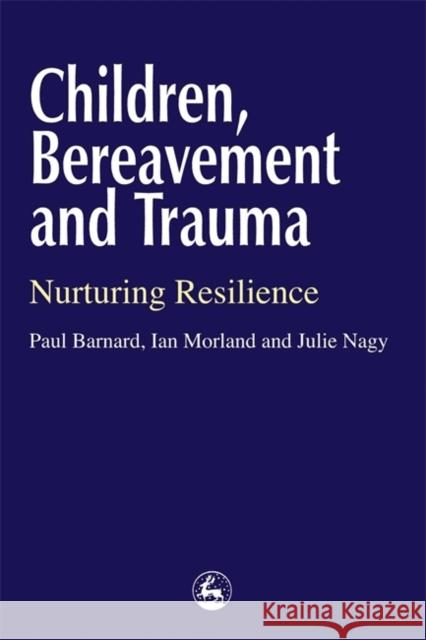Children, Bereavement and Trauma : Nurturing Resilience » książka
Children, Bereavement and Trauma : Nurturing Resilience
ISBN-13: 9781853027857 / Angielski / Miękka / 1999 / 160 str.
The recognition of children's natural resilience as fundamental to their ability to cope with trauma is central to this book. Deriving from the authors' experience of working with bereaved children after the Hillsborough disaster, the book advocates a model of practice which is based on their findings: the primacy of listening to children and listening uncritically; the importance of peer-group and family support; and the value of paying attention to children's needs, not those of adults. It promotes the idea of healthy coping, and explores ways in which children and their families can be enabled to do this. Children explain "what helped me," and recommendations for practice guidelines are supplemented by extensive lists of resources and support networks. The model can be applied to children who have experienced varying degrees of trauma: bereavement, bullying or terminal illness, for example. It also includes material which will be useful to those working with traumatised children with learning disabilities. Reflecting the views of children in conjunction with the professional expertise of the authors, this book will enable carers to reassess existing methods and forms a major contribution to the literature. Several books exist which look at helping children cope with loss and bereavement but very few offer such a personal perspective. The authors use their own experience of working with bereaved children following the Hillsborough disaster to introduce the reader to a model of practice which they refer to as a child's "natural resilience" in coping with life trauma. The book enables the reader to follow the process by which the project developed and gives an interesting and refreshing insight into the personal challenges faced by the authors when undertaking bereavement work with children. Practitioners who follow the traditional task-oriented model of bereavement work are likely to benefit from this different focus, which offers the reader a useful balance between the authors' personal experiences of the project and the theory that informed its development. The book begins with an overview of the nature and extent of the Hillsborough disaster, which provided the background for subsequent disaster work with children. The authors claim that through their work with the Liverpool Children's Project they "developed a model of practice which does not pathologise children's reactions to trauma and bereavement, but recognises the child's ordinary life as a place for recovery, growth and development."











